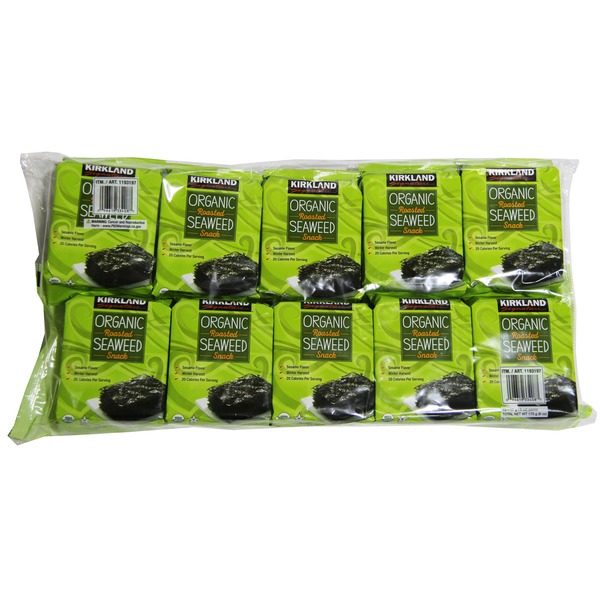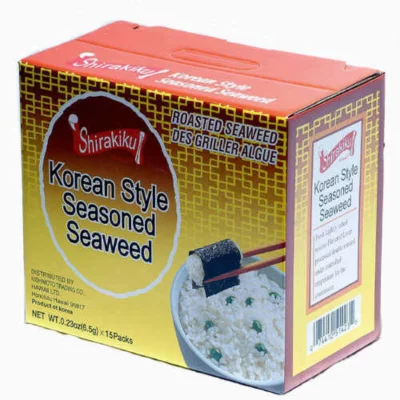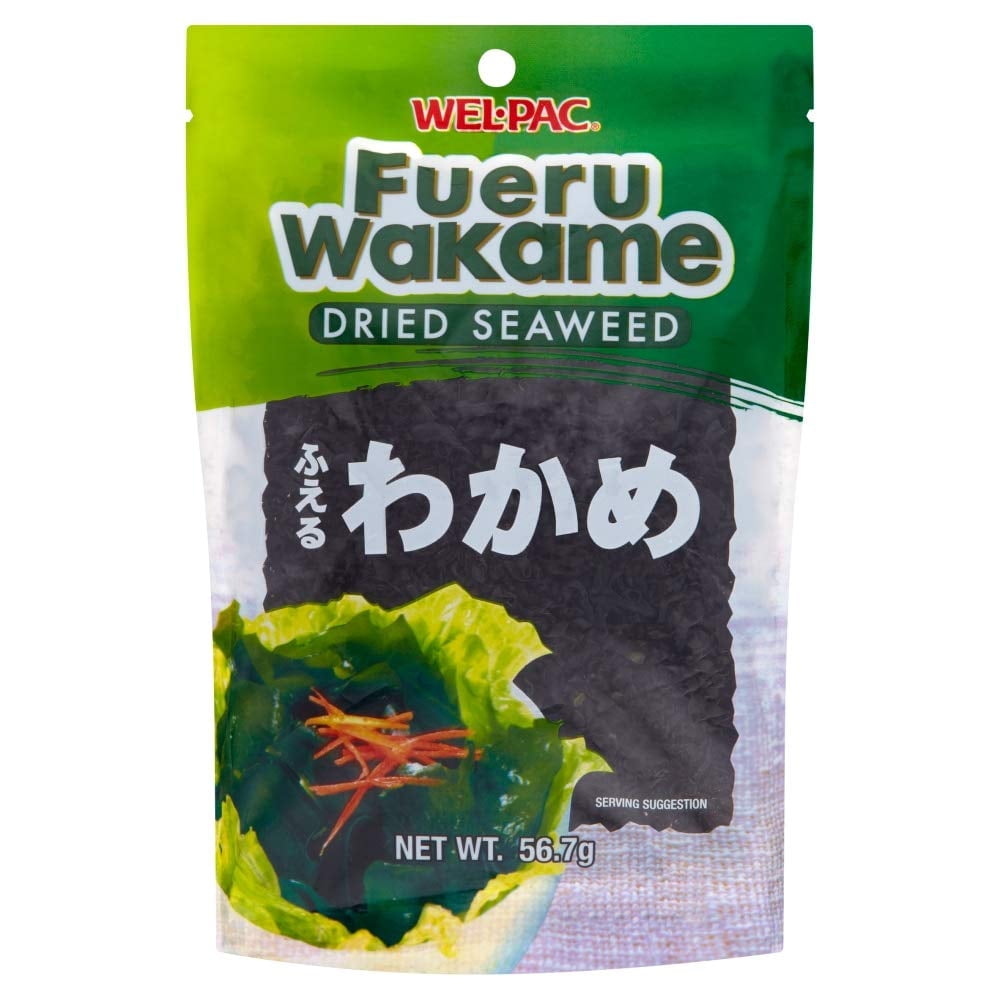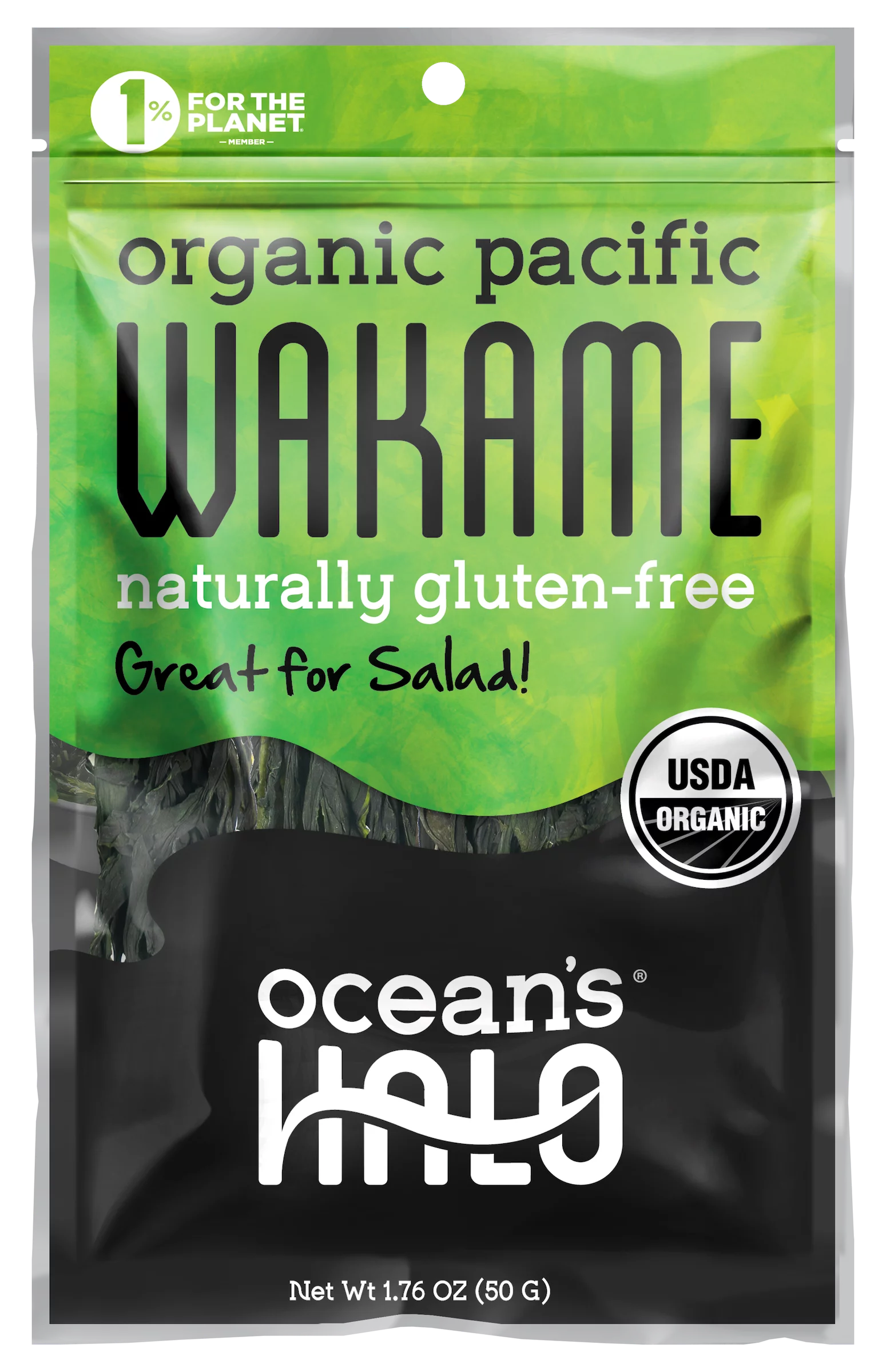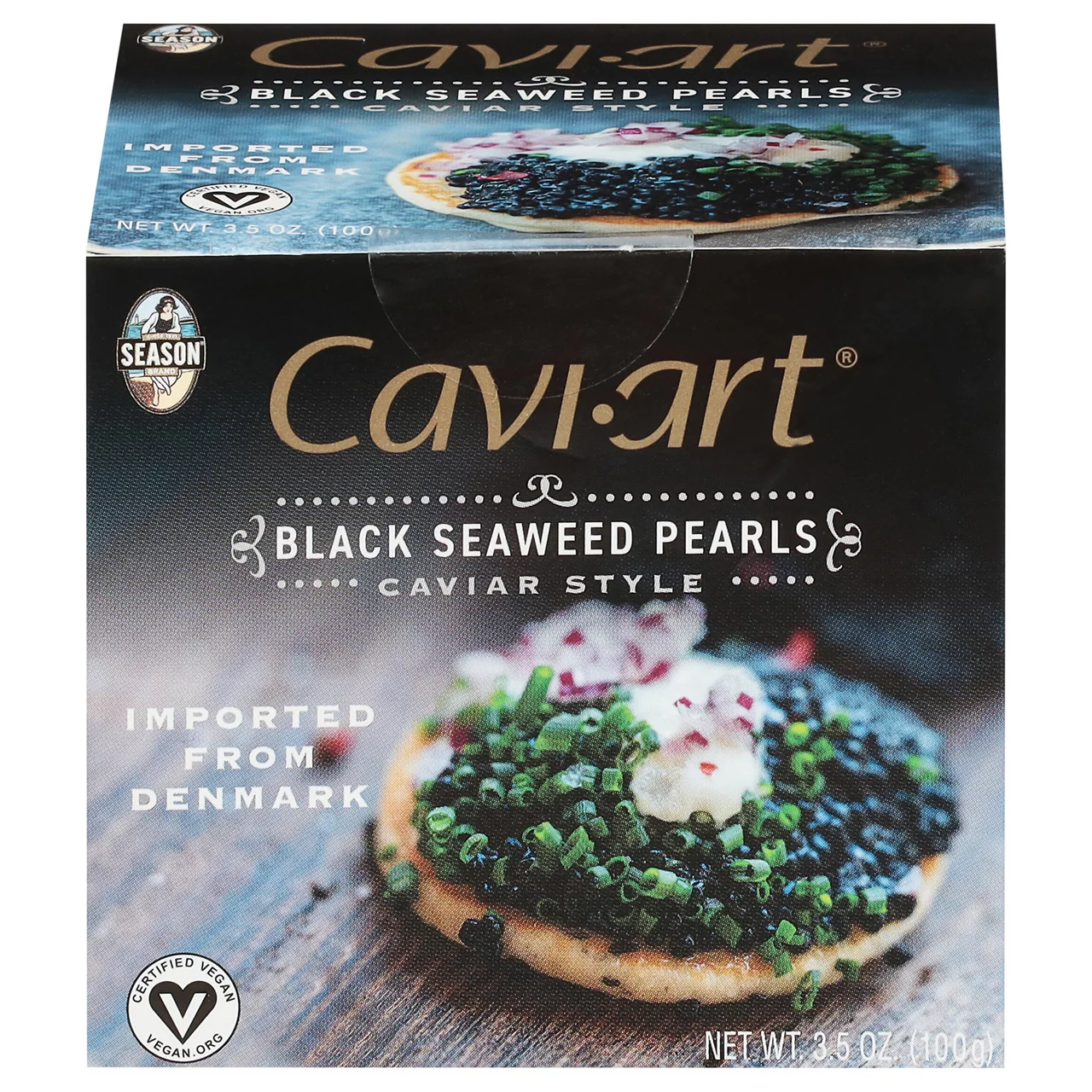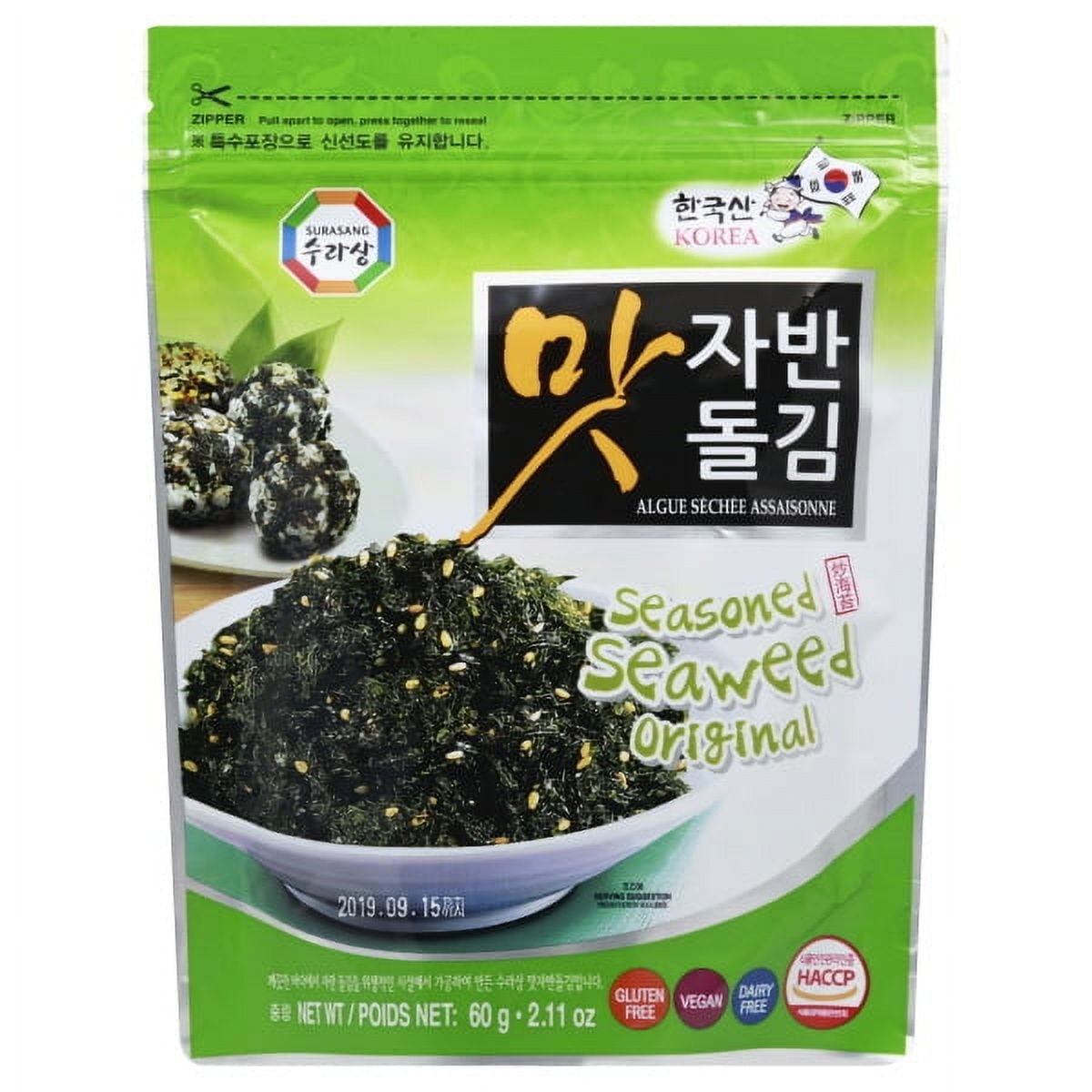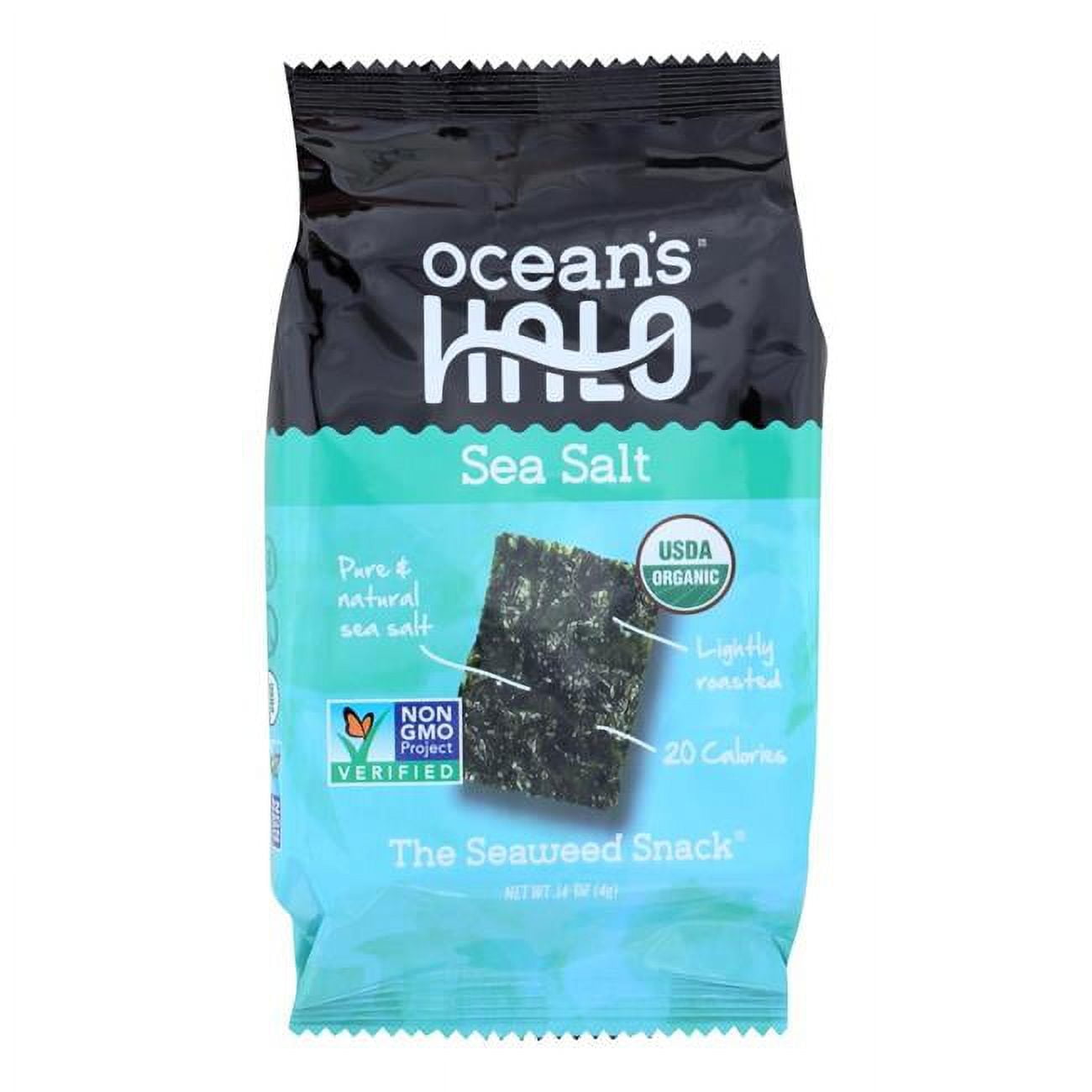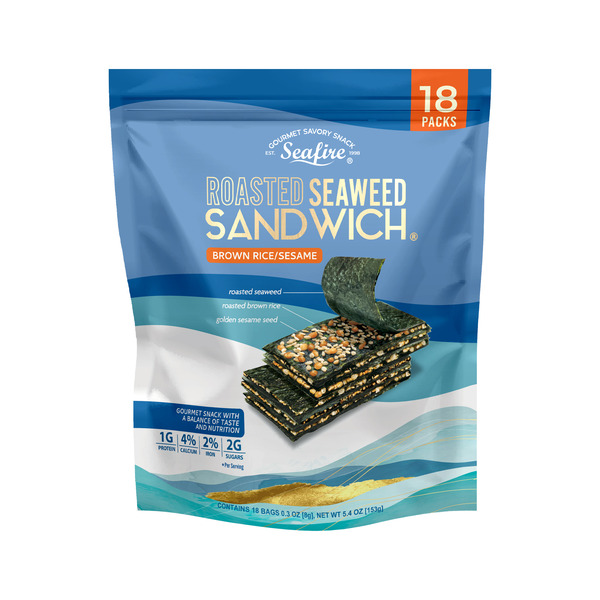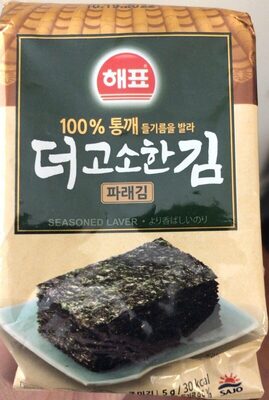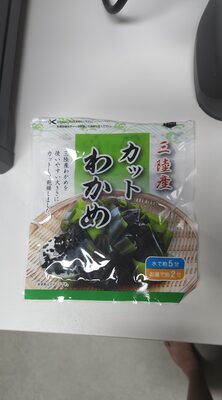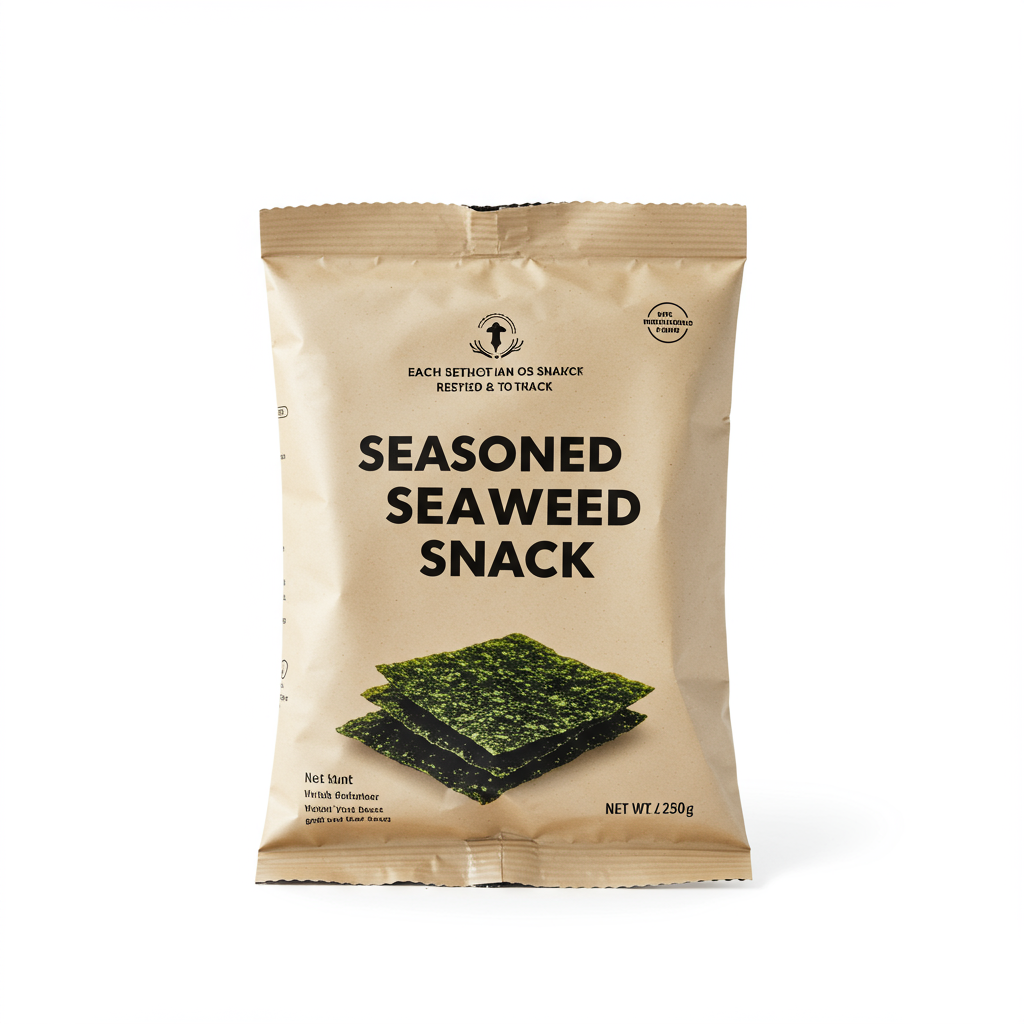SNACKS
SALADS
MAIN DISHES
Seaweed
Seaweed is a highly versatile and nutritious marine algae commonly used in various cuisines worldwide, especially in Asian countries like Japan, Korea, and China. Seaweed, available in multiple forms like dried or fresh, comprises a diverse range of edible species with distinct flavors, textures, and culinary applications, including nori, wakame, dulse, and kombu.
As a crucial ingredient in sushi, miso soup, and other dishes, seaweed is gaining popularity for its impressive nutritional profile, being rich in vitamins, minerals, and dietary fiber. Additionally, it is known for its potential health benefits, including improved digestion, heart health, and weight management.
81%
CARBS
5%
FAT
14%
PROTEIN
689 Seaweed Products
Kirkland Signature Organic Roasted Seaweed, 10 x
Shirakiku Korean Style Seasoned Seaweed - 15
Wel-Pac - Fueru Wakame (Dried Seaweed) Net Wt
Ocean's Halo Organic Pacific Wakame Seaweed, Great for Seaweed Salad, Shelf-Stable, 1.76 Ounces
Seasons Season Caviart Black Seaweed Pearls 35 Oz12
Surasang Seasoned Seaweed, Original
Ocean's Halo Organic Sea Salt Seaweed Snack, Cert Vegan Gluten Free Non-GMO
Seafire Roasted Seaweed Sandwich, 18 x
Seasoned seaweed
Wakame Seaweed
Used In 1 Recipe
Seaweed Is Frequently Used With
Seaweed FAQ
Seaweed is a superstar of the ocean world, bringing a unique flavor profile and texture to the cooking landscape. It's used in a myriad of dishes from sushi to salads, soups, and stews. While seaweed has a lot of culinary benefits, people often struggle with understanding various types, preparing it properly, or incorporating it into their dishes.
For individuals who are new to cooking with seaweed, they often rinse it excessively or rehydrate dried seaweed for longer than necessary, which can lead to a loss of flavor and nutrients. To get the most out of seaweed, it's important to understand that different types need different preparations. For instance, nori is usually used as is, while varieties like kombu or wakame need to be rehydrated for a few minutes before cooking. Soaking for too long can make them slimy.
Seaweed also needs to be stored properly, ideally in a cool, dark place in an airtight container to preserve its flavor and nutritional value. Additionally, when buying seaweed, go for varieties that have vibrant colors as they have more nutrients. Little-known, but useful to know is that not all seaweed tastes 'fishy'. There is a range of flavor profiles from sweet to savory depending on the variety you choose.
Do I need to wash seaweed before cooking?
How can I rehydrate dried seaweed?
What is the nutritional profile of seaweed?
How can I incorporate seaweed into my diet?
Does the type of seaweed matter when cooking?
Is seaweed good for weight loss?
Do I have to be concerned about the iodine in seaweed?
Can you roast any type of seaweed?
Can you cook seaweed without soaking it?
Is seaweed gluten-free?
Expiration & Storage Tips
When does seaweed expire?
Unopened dried seaweed can last up to 2 years from the production date if stored properly. Once opened, it's best to consume dried seaweed within 1 month, as exposure to air can cause it to absorb moisture and lose its crispness. Fresh seaweed, on the other hand, is very perishable and should ideally be eaten within a few days of purchase. Frozen seaweed can also last up to 2 years, but should be used immediately after defrosting.
How do you tell if seaweed is bad?
For dried seaweed, discoloration, an off smell, or non-crisp texture can all suggest it's past its best. You should also look for evidence of mold or bug infestation. Fresh seaweed that has gone bad may emit a rotten smell, turn a dark green or brownish color, and feel slimy to touch. Also, be cautious of any signs of mold.
Tips for storing seaweed to extend shelf life
• Store dried seaweed in an airtight container in a dry, cool place away from direct sunlight.
• If you won't be using fresh seaweed right away, wrap it in damp kitchen paper, place it in a plastic bag, and refrigerate it. Just remember to change the paper if it becomes overly wet to prevent the seaweed from getting soggy.
• Freezing is a good option for long-term storage of both fresh and dried seaweed. To prevent clumping, spread out the fresh seaweed on a tray and freeze for a few hours before packing into freezer bags. For dried seaweed, simply store in an airtight container or zip-lock bag in the freezer.
• No matter the storage method, always keep seaweed away from strong-smelling foods to prevent it from absorbing unwanted odors.
EXPIRES WITHIN
5 - 7
MONTHS
Substitutes
Health Info
Macros
0g
CARBS
0g
FAT
0g
PROTEIN
Allowed on these diets
LOW FAT
HIGH CALCIUM
VEGETARIAN
KETO
PALEO
WHOLE 30
MEDITERRANEAN
LOW CARB
VEGAN
LACTOSE FREE
GLUTEN FREE

